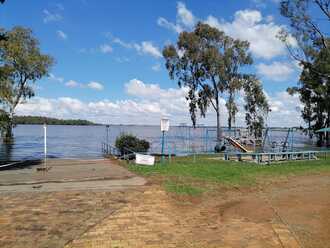- Featured
- Clean air
- Climate justice
- Consumer Rights
- Corporate Accountability
- Data access
- Early Childhood Development
- Economic fairness
- Education
- Electoral fairness
- Environmental justice
- Food justice
- Gender based violence
- Grants/social assistance
- Health
- Housing and infrastructure
- Industry interference
- Land Justice
- LGBTQIA+ rights
- Media/ information access
- Public transport
- Racism
- Reparations
- Safety
- Sanitation
- Service Delivery
- Sexual and Reproductive Rights
- Social justice
- Unemployment
- Womxn's rights/ gender equality
- Workers' rights
- More
-
City Of Cape Town, Reopen our Community Pools!The community pools are located in areas of Cape Town including Athlone, Bonteheuwel, Delft, Hanover Park, Khayelitsha, Langa, Manenberg, Woodstock etc where there are very limited recreational resources available to the community. The community pools are one of the most used facilities by the community during the summer months. The pools which charge just R3 for children and R9 for adults are affordable and safe and keep the children off the street in summer. Children do have time to do go to the pool after school in February and March, not just on the weekends, because they don't have exam pressure yet. Adults in the communities use the pools to exercise, including senior citizens. Many of the lifeguards working at the community pools come from the communities themselves and desperately need this seasonal work. Unlike in the green, leafy suburbs, these communities do not have access to private swimming pools. Closing the community pools and only providing budgets for regional pools like Sea Point is therefore a blatantly anti-poor way to spend Cape Town’s budget. * Stand with our vulnerable communities and our children – sign & share now. * Want to do more? Email or whatsapp your ward councillor asking them to reopen your local pool immediately. Find your ward councillor and their email address here: https://www.capetown.gov.za/Family%20and%20home/meet-the-city/city-council/find-your-councillor-ward-or-subcouncil/show-wards #ReOpenOurPoolsNow and bring back the summer fun! Umbrella Civic 57+ Aqua-aerobics for seniors group at Trafalgar Bonteheuwel Development Forum Cape Town Commons Collective Observatory Civic Association Reclaim the City Trafalgar Amateur Aquatic Club Walmer Estate Civic Association (WECA) Woodstock Residents’ Association (WRA)635 of 800 SignaturesCreated by Woodstock Residence Association (WRA)
-
#HandsOffGabrielleGoliath: Gayton McKenzie must stop censoring our artistsMinister McKenzie’s decision has serious implications that extend beyond a single exhibition. It risks harming constitutional rights, including freedom of expression and freedom of opinion. This will set a terrible precedent and prevent artists from creating and expressing themselves freely. If a minister can overturn artistic decisions, then all future cultural work supported or facilitated by the state becomes vulnerable to political interference, regardless of viewpoint or ideology. The Minister's decision to prevent South Africa from participating in the biennale was a blatant abuse of power and a clear violation of an artist’s freedom of expression. We cannot let the Minister of Arts and Culture use his power to override artistic freedom by censoring artists. What Minister McKenzie did is maladministration, and we have to hold him accountable to ensure that he does not do something like this again. References 1. Gayton McKenzie pulls the plug on SA’s Venice Biennale submission because it alludes to Gaza genocide, Niren Tolsi for Daily Maverick, 09 January 2026.504 of 600 Signatures
-
We demand an apology for Minister Gwede’s comments about unemployment.Unemployment in South Africa is at crisis levels. A lot of young people are qualified, willing, and ready to work, yet they struggle to find jobs. Many have followed government advice: studying, gaining skills, applying for jobs, or even starting small businesses, yet opportunities remain scarce. Statements such as those by Minister Gwede Mantashe, suggesting that the youth should stop relying on government support, ignore the harsh realities we face daily. This messaging leaves young people confused, frustrated, and hopeless about their future. Our people are not lazy or entitled; they are struggling to survive in an economy that offers too few opportunities. When government leaders make dismissive statements, it signals that people’s lives and struggles do not matter. This erodes trust in leadership and discourages young people from engaging productively in society. Silence from decision-makers can deepen this frustration, which is why public pressure is critical. Our country’s future depends on how young people are treated today. We need opportunity, dignity, and hope, not vague promises or hurtful, careless statements made by our leaders in the media. As our leaders, you know the unemployment crisis we face as a country, so it makes no sense to see people in government speak so recklessly about this crisis and place blame on the unemployed instead of the very government they are part of. We demand an apology from Minister Gwede Mantashe. References 1. In Conversation with Minister Gwede Mantashe by SABC News. 04 January 2026. https://www.youtube.com/watch?v=e7gBPD-cvds&t=1860s1,392 of 2,000 SignaturesCreated by Norman Mathebula

-
We demand the government to make the 2nd of January a National Holiday• South Africans celebrate the New Year with great energy, often staying awake through the night of December 31st into January 1st. • Some South Africans cannot even spend New Year's with their families since they are forced to drive back to their respective cities shortly after Christmas so they can report to work on the 2nd. If they spend New Year's, they will have to go back later that evening, and travelling after the 31st festivities is a safety risk due to extreme fatigue. • With South Africa facing high road fatality rates during the festive season, an extra day of rest is a life-saving intervention. • Furthermore, January 2nd holds deep cultural weight as 'Tweede Nuwe Jaar,' historically a day of rest and celebration for the enslaved people of the Cape. It is for these reasons that we demand our government look into making January 2nd a public holiday. Not only does it make it possible for families to celebrate welcoming the New Year together, but it is also a day that will honour our history and heritage. If we all come together and sign this petition, we can pressure the government into ensuring that workers get sufficient family time and rest, as well as honour the history of formerly enslaved people of the Cape.164 of 200 SignaturesCreated by Eugene Maribe
-
Tell NSFAS to Stop Harassing Unemployed GraduatesOver-indebtedness and financial vulnerability amongst South Africans is rife. “An estimated 10 million South Africans are over-indebted, with 37% of formal credit borrowers facing repayment issues.”(5). According to Debt Busters, those with a monthly net income of less than R5,000 p/m have an overoll debt-to-income ratio of 83%. Now, to charge graduates interest a year after they graduate irrespective of whether they are employed or temporarily employed, is to suffocate them with future debt. This worsens inequality as this is disproportionately affecting young, black and financially unstable youth. NSFAS is demonstrating a lack of consideration for the everyday social and economic realities of many. A post-matric qualification is meant to lead people from low-income households to economic development, but to be assisted by NSFAS, seems to now be setting oneself up for debt. South Africa’s economy is not growing, which means there are not enough jobs being created. This has led to high levels of unemployment, which disproportionately affects young people. Yet NSFAS starts accruing interest on students’ accounts, a year after they graduate. Expecting payment from people who are dealing with unemployment and/or short term employment, handing our accounts to lawyers who hound us shows a lack of sympathy and it is punishing graduates for an issue beyond their capabilites. How much will a person who secures employment 5 years later, owe NSFAS? NSFAS is putting students in unnecessary debt and subjecting them to an endless cycle of financial insecurity. With a budget shortfall that resulted in several students struggling to register for the second semester, NSFAS is under immense pressure to perform its role as a financial provider for students from low-income households. Three reasons for this pressure have been identified as declining real value of state allocation, increasing number of students who qualify for higher education and NSFAS and persistently low recovery loan rates. To add to these is the issue of many universities having limited capacity for generating other streams of income, which then results in universities placing the burden of the cost of higher education on the students, in the form of high tuition fees(6). Before hounding and problematising graduates who are unemployed because of the low economic growth, higher education and NSFAS should look at assisting universities with the capacity to generate income and solving issues of misgovernance, respectively. Refrences 1. https://www.nsfas.org.za/content/downloads/2025%20Loan%20Scheme%20Guidelines%20(Updated%20%20Approved).pdf 2. https://www.education.gov.za/Portals/0/Documents/Publications/BEEI%20V%20Documents/Annexure%20H%20-%20Guideline%20on%20the%20calculation%20of%20pro-rata%20payment%20of%20stipends%20-%20BEEI%20Phase%20V.pdf?ver=2025-07-22-124132-960 3. http://www.jobsfund.org.za/pyei.aspx 4. https://www.news24.com/business/economy/unemployment-worsens-24-of-young-university-graduates-now-jobless-20250513-0667 5. https://finmark.org.za/knowledge-hub/articles/12-million-adults-struggle-with-debt-while-relying-on-credit-to-cope?entity=news 6. https://www.researchgate.net/publication/332753204_Funding_Access_and_Quality_Conundrum_in_South_African_Higher_Education1 of 100 SignaturesCreated by Asanda Bikitsha
-
We demand clean water and functional sewage systems in Dan Tloome and areas around itWhen the housing project began, it was intended to include sufficient greywater and sewage systems to serve the entire area; however, this has not been implemented. Currently, there are sewage problems in Dan Tloome, which also impact lower-lying areas near the housing project. As a result, when sewage overflows into stormwater pipes and contaminates boreholes—the only source of drinking water for these areas—our wetlands are polluted. The officials in charge of this housing project have failed, and continue to fail, the community of Dan Tloome and its surroundings, because residents are forced to live with poor sanitation conditions and drink contaminated water. There is no functioning sewage treatment plant in Randfontein due to a lack of maintenance, and it has been vandalised. Manholes are overflowing with raw sewage and flowing into nearby marshes, dams, and rivers, contaminating our underground drinking water. This supply is going to cause an outbreak of diseases and the killing of livestock. There is also a possibility that this spillage will end up in the Vaal River and dams, resulting in more people being vulnerable to diseases. Meetings were held with the municipality, and they assured us that they will keep a watchful eye on the situation to prevent any spillage. This was never done. Sewerage spillage had been active for many months and was not brought to our attention, remaining unreported for months until residents noticed the sewerage odour in the air and investigated. The situation has gotten worse now that it often rains. We need to come together and pressure the municipality into doing right by us. This is a clear violation of our human rights. We deserve clean water and functional sewage systems.424 of 500 SignaturesCreated by Carol Hefer
-
Provide Capricorn District Villages With Indoor Residual Spraying Once a YearPeople in the Capricorn district continue to experience discomfort and poor living conditions due to uncontrolled mosquito infestations. The municipality must take urgent action to provide proper mosquito control and improve conditions in the district. The Limpopo Department of Health recently advertised spray operator posts;[3] only 12 positions were advertised for the Capricorn district, which has over 400,000 households. While it is understandable that the Department of Health prioritises Mopani and Vhembe because they experience higher malaria cases, this focus overlooks challenges faced by other districts. The Capricorn district may not be suffering from malaria outbreaks, but it continues to live with severe mosquito infestations that affect their daily lives and comfort, which is not okay. “I have to use some of my grant money to buy mosquito repellent products, which won’t even last me a month”, these are the words of an elderly woman, Maggie Malebana from Moletjie, a village outside Polokwane. “Over 20 years ago, we used to have spray operators come to our homes to get rid of mosquitoes,” She added. Indoor Residual Spraying (IRS) has been one of Limpopo’s most effective ways to fight mosquito infestation for many years. The programme was introduced in 1932 and expanded in the 1990s through the Department of Health’s Malaria Control Programme.[4] Trained spray operators went door-to-door to spray once a year before the rainy season. Today, the IRS is limited to certain areas, leaving other districts, such as Capricorn, exposed to mosquito infestations that still affect people’s daily lives and wellbeing. The Free State Department of Health is investigating a malaria outbreak in Luckhoff, an area that is considered non-endemic. This should demonstrate that mosquito infestations will eventually lead to malaria, even in areas considered “non-endemic”.[1] The mosquito problem in the Capricorn district is not something that households can control with sprays and repellents; it is an infestation that requires measures on a larger scale to address through proper vector control measures.[2] The Capricorn district municipality must fulfil its responsibilities and ensure that every household receives Indoor Residual Spraying to prevent mosquito infestations. The municipality must recognise that mosquito control should not only be linked to malaria prevention but also to improving the overall living conditions of all Limpopo residents. [1] Health Authorities Investigate Malaria Outbreak In Free State, Luckhoff Area. Mmangaliso Khumalo for Jacaranda FM, 14 October 2025. [2] Limpopo Department of Health's Mosquito Infestation Warning Statement, 29 January 2025, Facebook [3] Limpopo Department of Health Spray Operator Positions, 18 August 2025 [4] Summary of Indoor Residual Spraying (IRS) In South Africa, Africa Fighting Malaria2 of 100 SignaturesCreated by Rina Lekoloane
-
We Demand an end to Corruption in South Africa’s Government Now!Corruption, mismanagement, and political interference are destroying the foundations of our democracy. Every South African is affected, whether through collapsing municipalities, unsafe communities, failing services, or stolen public resources. When leaders act without transparency or accountability, ordinary people pay the price. This campaign is important because we cannot continue to watch our country deteriorate while those in power remain untouched. We must stand together to demand honest leadership that puts people first. But this is not just about policies or numbers—it’s about real human lives. Communities are suffering because basic services do not arrive on time. Young people remain unemployed while tender corruption enriches a connected few. Whistleblowers who speak out are threatened, silenced, or even killed, leaving the truth buried and justice denied. Many of us have felt this pain personally, whether in our own households or in the stories of neighbours who struggle daily. If we do not take action now, the next generation will inherit a broken system. Public pressure is one of the most powerful tools we have. When citizens unite, decision-makers cannot ignore our voices. A strong, united petition forces government leaders to respond, to explain themselves, and to implement changes they have avoided for years. We have seen this across the world: when communities mobilise, demand transparency, and refuse to be silent, leaders are pushed to act. By adding your name, you help amplify a collective call that no official can easily dismiss. This campaign matters because South Africa deserves better. We deserve a government that serves people, not politicians. By standing together, we can push Parliament, the Presidency, and key oversight bodies to take meaningful action—protecting whistleblowers, exposing corruption, and restoring dignity to our institutions. Change will not come from the top. It will come from ordinary people raising their voices, one signature at a time. Join us, and help build the South Africa we know is possible.3 of 100 SignaturesCreated by Maniki Goodstaff Rapuleng

-
Nothing About Us, Without Us: Include Sex Workers in the Review of the Sex Work Bill!Sex workers in South Africa face daily violence, police harassment, and social exclusion, much of which is worsened by criminalisation. True reform cannot happen if the people most impacted are treated as an afterthought[3]. The Constitution guarantees everyone’s right to equality, dignity, and participation in decisions that affect their lives. Excluding sex workers violates these principles and undermines South Africa’s human rights commitments[4].Decriminalisation must be built with sex workers, not for them. Their voices, expertise, and lived experience are essential for creating laws that protect rather than punish[5]. Sign this petition to demand that the Department of Justice and Parliament immediately act: include sex workers and sex worker-led organisations in the review process, publish the SEIA, communicate a clear timelines, and ensure that the Bill is developed with those most affected, not for them. Because nothing about us, without us! Everyone deserves a seat at the table! References 1. Asijiki Coalition for the Decriminalisation of Sex Work, n.d. Sex Work and Human Rights Fact Sheet. Available at: https://asijiki.org.za/wp-content/uploads/Sex-work-and-human-rights_Asijiki-Fact-Sheet_Web.pdf [Accessed 4 Nov. 2025]. 2. AVAC, 2023. Decriminalisation of Sex Work Prevents HIV — South Africa Could Overturn Its Outdated Laws. Available at: https://avac.org/blog/decriminalization-of-sex-work-prevents-hiv-south-africa-could-overturn-its-outdated-laws/ [Accessed 4 Nov. 2025]. 3. Human Rights Research Centre, 2025. The Case to End the Criminalisation of Sex Work in South Africa. Available at: https://www.humanrightsresearch.org/post/the-case-to-end-the-criminalisation-of-sex-work-in-south-africa [Accessed 4 Nov. 2025]. 4. Human Rights Watch, 2019a. Why Sex Work Should Be Decriminalised in South Africa. Available at: https://www.hrw.org/sites/default/files/report_pdf/southafrica0819_web_0.pdf [Accessed 4 Nov. 2025]. 5. Human Rights Watch, 2019b. Why Sex Work Should Be Decriminalised [online]. Available at: https://www.hrw.org/news/2019/08/07/why-sex-work-should-be-decriminalized [Accessed 4 Nov. 2025]. 6. Institute of Race Relations, 2022. Submission on the Sexual Offences and Related Matters Amendment Bill. Available at: https://irr.org.za/reports/submissions-on-proposed-legislation/irr-submission-on-sexual-offences-amendment-bill-2022.pdf [Accessed 4 Nov. 2025]. 7. SECTION27 & Treatment Action Campaign, 2023. Joint Submission on Sex Work. Available at: https://section27.org.za/wp-content/uploads/2023/02/Joint-Submission-by-SECTION27-and-the-Treatment-Action-Campaign-31012023-1.pdf [Accessed 4 Nov. 2025]. 8. De Rebus, 2023. The De-criminalising of Sex Work in South Africa: A Brief Trajectory. Available at: https://www.derebus.org.za/the-decriminalising-of-sex-work-in-south-africa-a-brief-trajectory-overview-of-the-criminal-law-sexual-offences-and-related-matters-amendment-bill-of-2022/ [Accessed 4 Nov. 2025].6 of 100 SignaturesCreated by Orthalia Kunene
-
Communities Before Corporations: Reform South Africa’s Mining Law for Justice and AccountabilitySouth Africa’s mineral wealth continues to enrich corporations and elites while leaving mining affected communities in poverty, with broken ecosystems and unfulfilled promises[6].The ongoing MPRDA Amendment Bill offers Parliament a historic opportunity to correct this imbalance, to center justice , transparency and community participation in mining governace[8]. We believe Parliament must reaffirm its constitutional duty under Section 59(1)(a) , to facilitate public involvement in the legislative process, especially for communities most affected by extractive industries[9]. As MACUA, WAMUA, and YAMUA, together with our allies and supporters. We demand a mining future that puts people before profit, ensures gender equity, environmental protection, and accountability, and restores community control over land and resources.[7]. A call for Action : After signing, Please share this petition widely. Tag @ParliamentofRSA, @DMRE_ZA, and @GwedeMantashe1 to demand urgent action for mining affected communities. Parliament must listen to the people, not mining companies! Sources / References: • MACUA, WAMUA, YAMUA. Petition to Parliament: Calling for Justice for Mining-Affected Communities (2025) • Constitution of the Republic of South Africa, 1996 – Sections 59, 195, and 24 • National Assembly Rules, Rule 347 (2024 revision) • Mineral and Petroleum Resources Development Act (MPRDA) and Amendment Bill (2025) • National Environmental Management Act (NEMA)182 of 200 SignaturesCreated by MACUA Mining Affected Communities United In Action

-
We urge the Minister of Education, Siviwe Gwarube to extend Phase 5 BEE contractsMany of us are breadwinners, and our families depend on us. The end of this contract means that our families will fall back into poverty. Minister, we are requesting a six-month extension. Not only do we support our families, but we also send our younger siblings to school. This programme has alleviated many of our burdens, and we did not have to worry about unemployment. However, now that it is coming to an end, we are filled with nothing but fear. Our country faces a very high unemployment rate, and we know it will be extremely difficult to find jobs once our contracts end. We urge the Minister to extend our contracts by another six months and to consider making this programme permanent.16,453 of 20,000 SignaturesCreated by Itumeleng and Mabasa
-
SAVE THE VAAL MARINA WATERFRONT PARK - RENEW THE LEASEThe Vaal Marina Waterfront Park is more than just a green space, it is a symbol of community, freedom, and shared heritage. For years, it has provided residents and visitors with a safe, accessible environment for recreation, relaxation, and connection. Its presence has contributed to the unique charm of Vaal Marina village and supported local businesses by inviting people to our community. Losing this space would be a blow not only to our quality of life but to the economic and social fabric of our town. We are calling on every resident, and concerned citizen to stand together and demand that the Midvaal Local Municipality renew or extend the park’s lease agreement. When we unite our voices, we send a clear message: this park matters. Public pressure is one of the most powerful tools we have. Municipal leaders are elected to serve the interests of the community, and when that community speaks loudly and clearly, they are compelled to listen. By signing this petition and sharing it with others, you’re helping build a wave of support that cannot be ignored. Whether through media coverage, council meetings, or direct engagement with decision-makers, our collective action can shift priorities and force meaningful decisions. The more signatures we gather, the stronger our case becomes — and the harder it is for officials to dismiss our concerns. This is our moment to protect what belongs to all of us. Join the campaign, sign the petition, and help ensure that the Vaal Marina Waterfront Park remains a vibrant, public space for generations to come. Together, we can preserve the heart of our community.1,272 of 2,000 Signatures
.png)
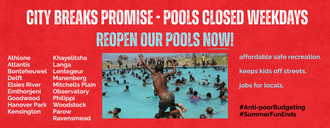.png)
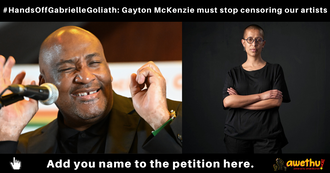
.jpg)
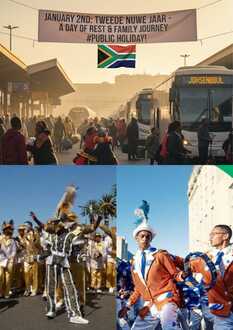
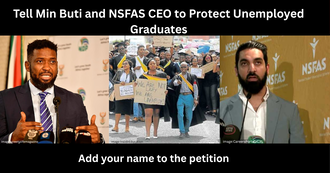.png)
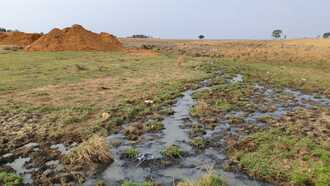
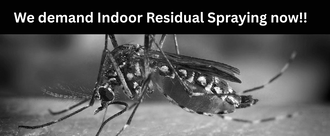.png)

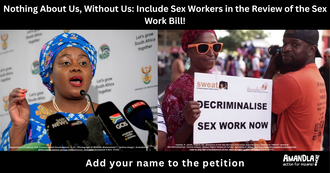.png)

.jpg)
